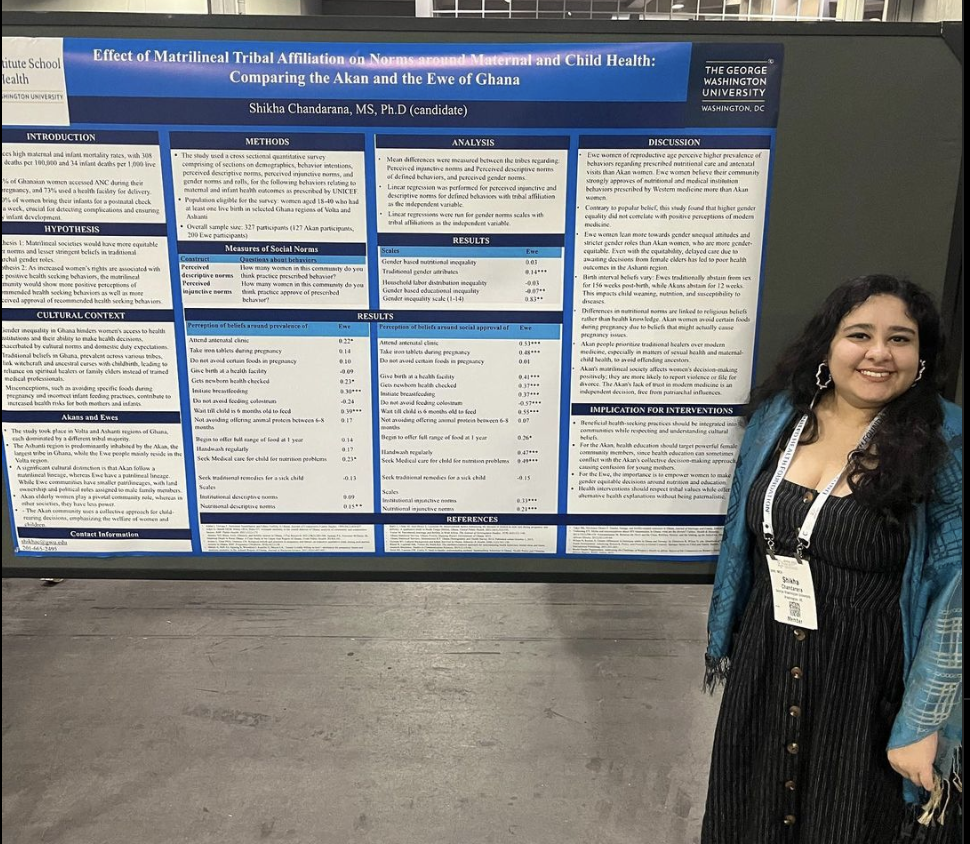Abstract:
Ghana remains one of the countries with high rates of maternal anemia, and malnutrition for children.
Many public health interventions aimed to equalize the disparity differences remain due to tribal and ethnic affiliation. In this study, the matrilineal tribe Akan that reside in part in Ashanti, and the patrilineal tribe Volta that in part reside in Volta, are compared to explore the relationship between tribal affiliation and maternal health and gender norms. As the Akan tribes have a matrilineal descent, assumptions exist about increased female empowerment in the communities and more female health-forward norms. Using the theory of normative social behavior, descriptive norms, or an individual’s belief about the perception of a certain behavior, and injunctive norms or an individual’s belief on approval of a behavior.
Social norms of thirteen maternal and child health and attitudes around gender inequality and decision-making were measured through questionnaires n=601. Using linear and categorical regression comparison between the two tribes and the measures described was conducted.
The patrilineal Ewe believed more members of their communities practiced recommended nutritional health behaviors; this relationship was magnified with the injunctive norms as the Ewe showed a significantly higher perceived approval. Yet, the results from the same comparison, now with gender norms, showed that the matrilineal Akan were significantly more likely to hold gender equitable beliefs, especially in the sub-measure of nutrition.Empowerment tends to play a role in public health interventions, but within the Akan where women are more socially powerful, there is less use of West recommended healthcare.


